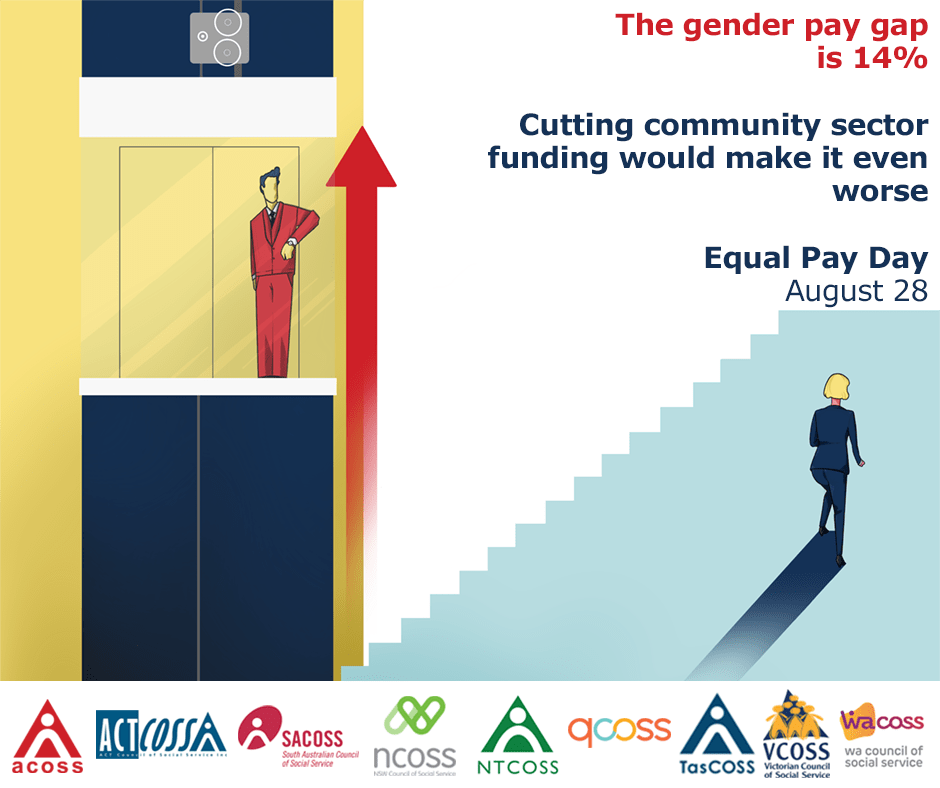With Equal Pay Day approaching on Friday, we’re calling on the Federal Government to commit to extending the funding that allows workers in the feminised community service sector to receive fair pay for their crucial work, and supports the services that we all rely on.
Community services are vital at all times but especially in crisis. Workers in the community service sector provide support to people when they need it most, when they’re facing homelessness, escaping domestic violence or dealing with mental health issues. These services are more important than ever in the current health and economic crisis.
While the Government says we’re all in this together, it has yet to commit to renewing funding for fair pay in the community service sector, which is made up of 80% women. Cutting funding for community sector workers would mean less people to help those who reach out in times of great need.
As the sector is predominately made up of women workers, it would also put the gender pay gap at risk of widening even further. Just a couple of weeks ago, the Workplace Gender Equality Agency confirmed the gap still has not budged from 14 per cent for full time work. Community sector workers, and the people they help, need the Federal Government to urgently commit to fair funding to help tackle the gender pay gap and ensure our communities are receiving the supports they need, especially in crisis.

It is important to understand the history of this funding. In 2012, the Fair Work Commission decided that work performed in Australia’s community services sector was undervalued and that the reason for the undervaluation was gender. Workers were awarded pay increases of up to 45 per cent. The federal government, as a major funder in the sector, agreed to pay “supplementary” funding to organisations to assist them pay these higher wages, noting the fact that a major reason for the undervaluation was the inadequate levels of government funding. Without a commitment to ongoing funding, this supplementary funding will cease in 2021.
Communities and organisations rely on this funding to pay the wages of workers on the front line of service delivery. This funding ensures that communities and organisations can deliver quality services to everyone who needs them, including some of the most disadvantaged people in our community. Without it, cuts to services are inevitable.
The sector has been faced with immense challenges in this pandemic – charities have seen a drop in donations, volunteer support has had to change and organisations have invested in adapting to deliver their services online and in a COVID safe way. The JobKeeper payment has acted as a lifeline by allowing community organisations to keep their workers on so they can help those most at risk in this crisis. But the payment is due to end for many community organisations next month. We know that the impacts of this crisis will be felt by the community long after JobKeeper ends so we’ll continue to see increased demand for services, including homelessness, domestic violence and mental health services.
If the Government were to fail to commit to extending the level of funding required for current numbers of staff it would have a devastating effect. We’d see thousands of job losses, right when the government should be focused on doing everything it can to reduce sky-rocketing unemployment. We’d also see a dramatic reduction in services available, right when so many lives are depending on them. This could really not be more serious.

